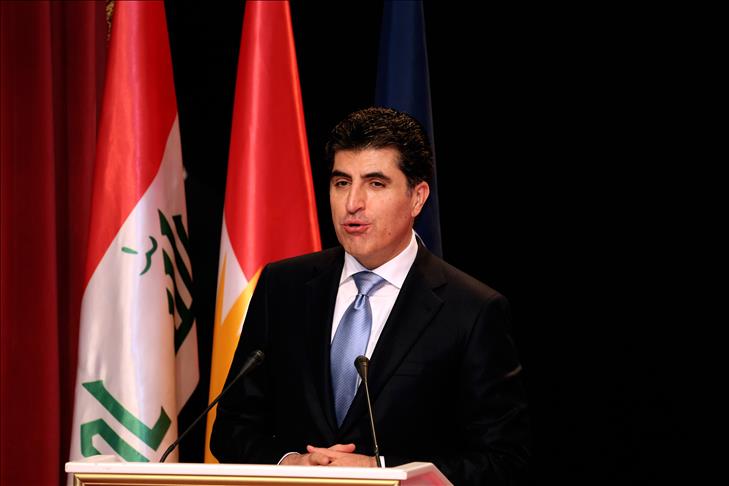
ANKARA
Iraq’s semiautonomous Kurdish regional government will continue sending oil to the federal government despite Baghdad not being able to keep its part of the bargain, an official with the regional government said Monday.
"Baghdad cannot return our 17 percent share in the federal budget because of their financial crisis," Nechirvan Barzani, prime minister of the regional government, said.
"However, we will honor our agreement and keep sending oil," Barzani added.
According to the agreement between Baghdad and Erbil reached on Dec. 2, the Kurdish regional government was allowed to export 250,000 barrels of oil per day, and Kirkuk province 300,000 barrels per day, under the federal government’s supervision. In return, the Iraqi government was required to provide 17 percent of its national budget to Erbil.
Barzani warned on Jan. 29 that Erbil could not send oil to Baghdad, saying the Kurdish region was also facing an economic crisis.
"We solved our problems with the federal government yesterday. We told Baghdad that we will deliver the determined amount of oil," he said.
"We told them to check the amount of oil we will send them every three months. If our deliveries are below the determined amount, they can cut our budget at the beginning of the fourth month," he added.
Barzani said Baghdad was facing a financial crisis like the regional government.
Iraq’s budget fell by $50 billion year-on-year, regressing to $100 billion in 2014. The Kurdish region needs $10 billion to overcome its economic drawbacks because of falling oil prices, a regional government official told AA on Jan. 13.
Dr. Izzet Sabir, president of Economy and Finance Commission and Kurdish lawmaker, had said that 95 percent of Iraq's budget came from oil exports, while the regional government needed at least $10 billion to overcome the economic downturn, the biggest crisis since the last 22 years.
Barzani said Monday that Baghdad did not have the money. "Even if we send 550,000 barrels per day, Baghdad cannot give us the money," he said.
"We understand their position, because we are also going through a financial crisis. That's why it's best to give them time to wait and see," he added.
He said that they supported dialogue with Baghdad because they were still a part of Iraq.
Baghdad and Erbil were pouring resources to fight against the militant Islamic State of Iraq and the Levant group in the region, while both governments' revenues suffered from falling oil prices.
Oil prices declined more than 60 percent in the last seven months, reaching their lowest point in almost six years in mid-January, and recording the fastest slump since 2008.
Iraq's total oil production has increased from 1.3 million barrels per day in 2003 to three million barrels per day in 2013, according to U.S. Energy Information Administration.
The Gulf country averaged 3.4 million barrels of oil output in 2014, a rise of 300,000 barrels per day from the previous year.
Iraqi Oil Minister Adil Abd Al-Mahdi said Jan. 19 that the Gulf country was producing oil at a record level of four million barrels a day, while its exports were expected to increase from three to 3.3 million barrels per day in 2015.
However, Iraq's total oil exports for January fell 14 percent, compared to the previous month, as it gained $3.2 billion, which is $2 billion less than December, according to its Ministry of Oil.
Anadolu Agency website contains only a portion of the news stories offered to subscribers in the AA News Broadcasting System (HAS), and in summarized form. Please contact us for subscription options.

